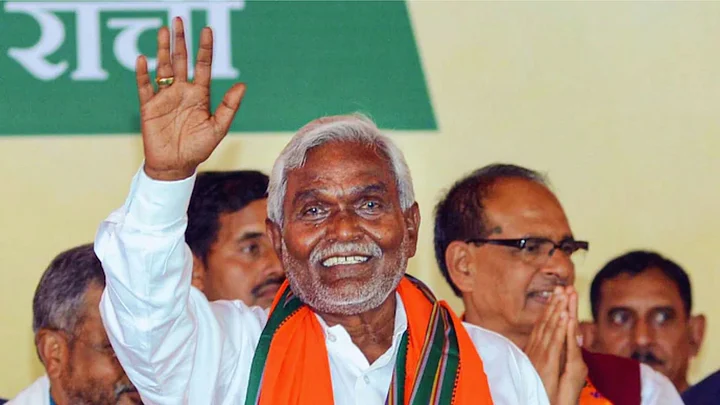Ahead of the Assembly elections in Jharkhand, the BJP-led National Democratic Alliance positioned its prospects around demographic fearmongering, Adivasi safety, corruption, and unemployment among the youth. The marvellous victory achieved in Haryana, defeating a decade-old anti-incumbency and forging counter-consolidation, has emboldened the BJP’s aspirations in Jharkhand.
The BJP also expects to attract Adivasi votes this time, as the BJP government, in the adjoining state of Odisha, has installed an Adivasi Chief Minister. The defection of Champai Soren is expected to produce a fissure in the near-total dominance of the JMM-led INDIA bloc in the Kolhan belt and other Adivasi-dominated areas of the state.
On the other hand, the INDIA bloc is pushing a narrative of Jharkhandiyat, a nativist identity campaign, to counter the communal discourse of the BJP, claiming them to be outsiders (similar to the political tactics of the TMC in West Bengal). They are also pitching for Adivasi dignity in the backdrop of the BJP's attempts to incriminate Hemant Soren.
As evident in the Lok Sabha results, the incarceration of Hemant Soren angered the Adivasis, which helped the INDIA bloc sweep the Adivasi belt (the BJP lost all the tribal seats).
Kalpana Soren's ascent in the political landscape after Hemant Soren’s arrest and her leading from the front have popularised her as a strong women Adivasi leader in the state. She led the party’s Lok Sabha campaign, managed the alliance in Delhi through her regular visits, won the by-election to become MLA, and is now travelling extensively across the state.
She is often found wearing an Adivasi hat, dancing with Adivasi women, paying homage to Adivasi icons and chanting slogans of Abua Raj. With her articulative speeches, beyond the shadow of her husband, she has successfully asserted herself through her political rhetoric and performance.
Her value grows even more because the BJP lacks any women leaders of equal stature in the state.
This election has also brought tall promises of welfare to attract voters, i.e., competitive welfarism. The BJP released its 'five promises' (Paanch Prana) manifesto, promising monthly cash transfers to women and college-going youth, jobs, and cheap cylinders.
While the JMM-led INDIA bloc is yet to release its manifesto, it is banking heavily on its flagship Maiyya Samman Yojana, which provides Rs 2,500 to women monthly, up from Rs 1000 after the last cabinet meeting in response to the Gogo Didi Yojana announced by the BJP.
Kalpana Soren has plausibly named her pan-Jharkhand yatra as the Maiyya Samman Yatra to create momentum for her party around the above-mentioned policy. Women have emerged as an independent electoral constituency outside the purview of social segmentation and community allegiance.
On the occasion of Gandhi Jayanti, the Prime Minister addressed a meeting in Jharkhand in which he said that the population of Adivasis and Hindus are declining in the state, with little proof to offer in support.
The BJP is trying to create a sense of oneness amongst the Hindus and the Adivasis, i.e., it is trying to project both communities as an equally vulnerable target of "Muslim expansion" (I argue here why this is a lie). Tactics of fear, with respect to both demography and land, are being used to carve a communal unity of Hindus and Adivasis to fight a "common enemy."
Similar to Haryana, where "counter-consolidation" helped the BJP contain mounting anti-incumbency and regain power, the same is being invoked against Muslims in Jharkhand.
This, however, won't be easy. The JMM, under the leadership of Hemant Soren, has emerged as the legitimate voice of the Adivasis in the state, who promoted his Adivasi self-hood and protected Adivasi interests. He actively supported the Sarna Code and even passed a legislative bill. He also brought in the Khatiyan Bill to protect the interests of the tribals.
Several decisions of the previous BJP government were taken back too. It includes dropping the Pathalgadi cases and shutting down the Netarhat Firing range project amongst others.
Finally, the INDIA bloc's larger thrust over secularism, communal harmony, constitutional vanguardism and the caste census, may provide the electoral dividend essential to counter the Hindutva consolidation articulated above.
(Himanshu Shukla is a PhD Student at the Centre for Political Studies at JNU. Views are personal.)
(At The Quint, we question everything. Play an active role in shaping our journalism by becoming a member today.)
